The US is considering recognizing Vietnam as a market economy . Opportunities to boost Vietnamese exports to the US are increasingly open. However, the US will also more strictly control the origin of goods coming from Vietnam.
US imposes additional tariffs on Chinese goods
On May 14, the White House announced that US President Joe Biden decided to sharply increase taxes on many imported goods from China such as electric vehicles, computer chips and medical products, in which the tax on electric vehicles increased fourfold to more than 100%.
Tariffs on photovoltaic cells used to make solar panels will be raised from 25% to 50%. Tariffs on some steel and aluminum products will be raised from 0% to 25%. In total, the new tariffs will affect $18 billion worth of goods imported from China.
Mr. Biden also kept the tariffs on $300 billion worth of Chinese products imposed by his predecessor - Mr. Donald Trump.
The US-China trade war has been going on since 2018. However, Chinese goods exported to the US are still overwhelming. In 2023, the US imported 427 billion USD worth of goods from China, while exporting 148 billion USD worth of goods to this market.
The White House said the decision was made due to "unacceptable risks" to US economic security caused by what it considers "unfair Chinese practices".
Recently, US Senate Banking Committee Chairman Sherrod Brownn even wanted Mr. Biden to completely ban Chinese electric cars due to concerns that they "pose a risk to Americans' personal data".
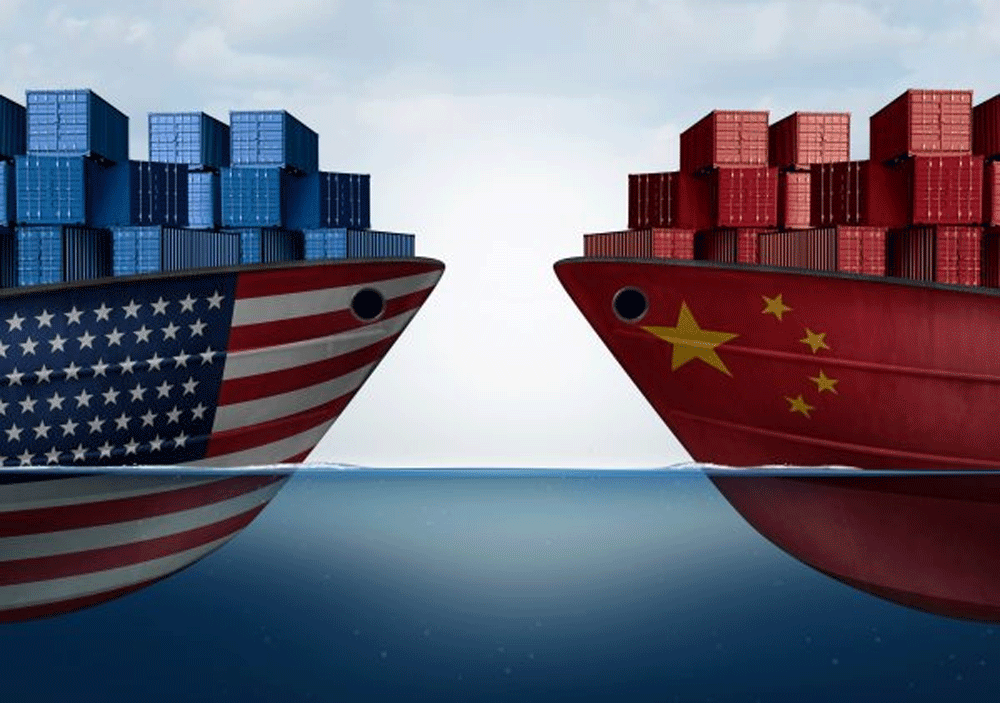
The US-China trade war began in 2018 and then spread into a technology war, a financial-monetary war, a public opinion war, etc. Tensions between the two economic powers may escalate. Since Mr. Trump took office in 2017, the US has considered China its “number 1 strategic competitor” and implemented tough policies towards the country.
According to the Washington Post, Mr. Trump is planning a "huge" economic attack on China, with the possibility of imposing a 60% tax on all goods imported from China, if he is re-elected as US president for the next term.
The economic potential of the US and China is very strong, it can be said that in many areas they are relatively equal, while their ideologies and development models are quite different. This could lead to a fierce economic war. It is very likely that a global trade war will break out. The world economy may witness a deeper fragmentation of global supply chains in the coming time.
The world economy is fragmented, how is Vietnam?
Currently, China's economy is facing difficulties due to low domestic demand, a prolonged real estate crisis... However, that is only a post-Covid problem and Beijing's efforts to restructure the economy. In the long term, China's economy is still considered a leading force, with a large market of billions of people, increasingly developed production, low-priced goods with high competitiveness, many large corporations reaching out to the world...
For example, BYD, the Chinese electric vehicle group, officially leads the global sales, surpassing billionaire Elon Musk's Tesla. After 2 decades of development, BYD not only did not wither at home as Elon Musk warned, but also became the world's largest electric vehicle manufacturer in the fourth quarter of 2023.
The gap in economic power between the US and China is narrowing. America’s position is under threat. Meanwhile, Beijing still believes that the US can threaten the value system and economic model that China has built.
The economic decoupling between the US and China has caused the world to fall into a state of instability, commodity prices have escalated. High inflation has made the US more "hawkish" with monetary policy, thereby causing chaos in the world financial markets, many currencies have lost value and plummeted in the past few years.
A “Cold War 2.0” appears to be brewing and could last, leading to geopolitical tensions and possibly hot wars in some regions. All of this would make economic activity more difficult in most countries.
In recent years, the world has witnessed a trend of shifting investment and global supply chains under the impact of the Covid-19 pandemic and US-China economic tensions. There have been waves of shifting production chains away from China.
Vietnam has a very open economy, with a series of multilateral and bilateral free trade agreements, etc., and has the opportunity to become a destination for international investment flows. In addition, upgrading relations with a series of leading economies in the world such as China, the US, Japan, India and recently Australia, etc., helps Vietnam boost exports to these leading economies.
On May 8, the US Department of Commerce listened to the debate of all parties on recognizing Vietnam as a market economy. This is an important discussion session for the US to consider upgrading Vietnam to market economy status on July 26.
It is known that Vietnam has met the 6 criteria of the US Department of Commerce to become a market economy. Being recognized as a market economy will have a very positive impact on the export of goods to the US, because many tax rates will be deeply reduced. Export turnover to the US may enter a new period of strong growth.
Recently, many large Chinese enterprises have increased their investment in Vietnam. At the end of March, Hainan Drinda - a Chinese manufacturer of renewable photovoltaic panels - said it would build a $450 million solar panel factory in Nghe An.
In February 2024, another Chinese giant, Trina Solar Cell Co., Ltd., a member of Trina Solar Group, was granted an investment registration certificate by Thai Nguyen province for a project worth 454 million USD, producing solar modules and batteries after having invested 478 million USD in 2 previous projects.
In the solar battery market in Vietnam, domestic enterprises are still modest and small in scale, the rest are foreign enterprises, mainly from China and the US.
According to plan, Chinese electric car maker BYD plans to build a factory in Vietnam, but there is no specific roadmap yet.
FDI capital inflows help Vietnam’s economy grow further. However, domestic enterprises are still weak in export competitiveness. Vietnamese goods exported abroad also mostly come from large foreign corporations. The FDI sector accounts for 70-75% of the country’s export value.
It can be seen that the world is changing very quickly, closely following the increasing strategic competition between the US and China (which is still in its early stages). Capital flows are also forecast to shift strongly and Vietnam has the opportunity to welcome a new wave of investment, as well as boost its export of goods. However, opportunities also come with risks as international and regional relations become increasingly complex.
Vietnam needs to accurately forecast trends and impacts of changes in international relations in order to have appropriate solutions, reduce risks and ensure benefits for the country, the region and the world.

China's parliament passed a law restricting sensitive exports that could affect national security.
Source: https://vietnamnet.vn/cuoc-chien-thuong-mai-my-trung-leo-thang-co-hoi-va-rui-ro-voi-viet-nam-2281015.html




![[Photo] National Assembly Chairman Tran Thanh Man meets with Thai Prime Minister Paetongtarn Shinawatra](https://vphoto.vietnam.vn/thumb/1200x675/vietnam/resource/IMAGE/2025/5/15/e71160b1572a457395f2816d84a18b45)

![[Photo] Prime Ministers of Vietnam and Thailand visit the Exhibition of traditional handicraft products](https://vphoto.vietnam.vn/thumb/1200x675/vietnam/resource/IMAGE/2025/5/15/6cfcd1c23b3e4a238b7fcf93c91a65dd)










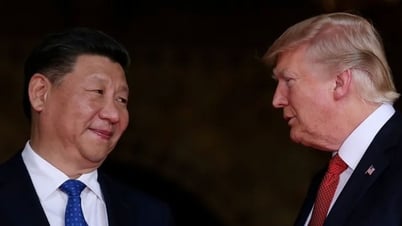
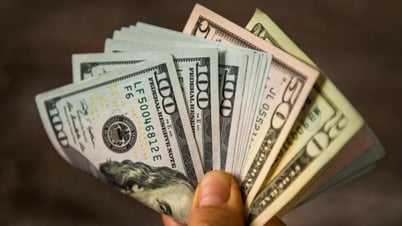


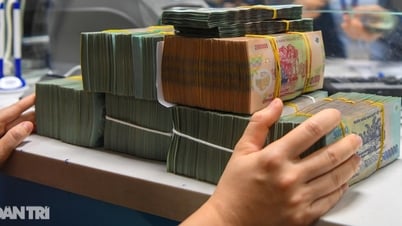




























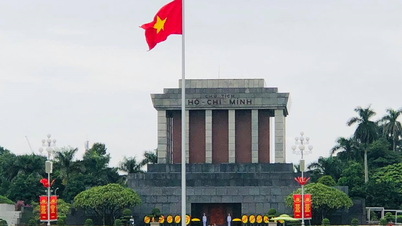



















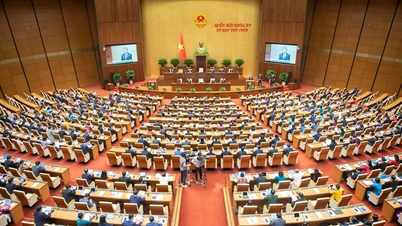































Comment (0)